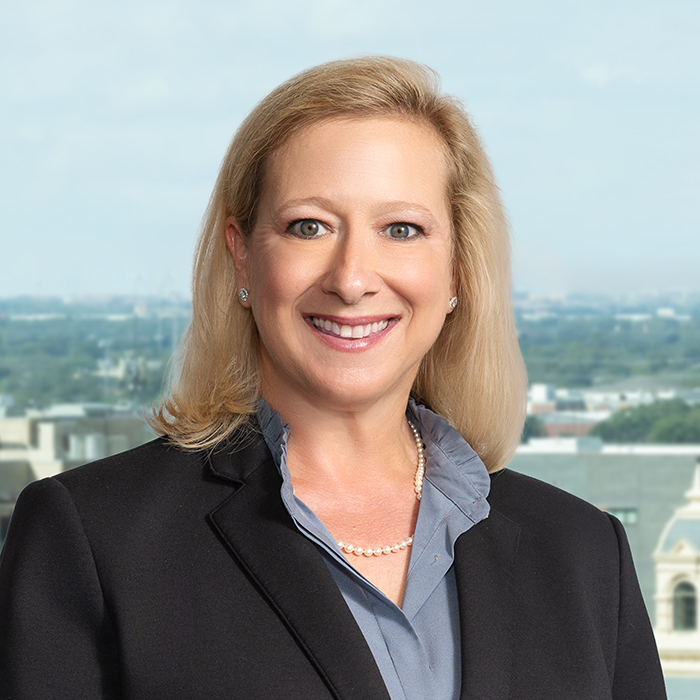By Julia Mann & Amanda Crouch
On March 23, 2020, the City of San Antonio and Bexar County each issued a “shelter in place” order, set to take effect at 11:59 p.m. on Tuesday, March 24, 2020, and running until April 9, 2020, unless extended. The Stay Home, Work Safe orders generally require San Antonio and Bexar County residents to remain at home except when engaged in Exempted Activities or working for Exempted Businesses. City and County officials have advised that if an activity or business is not specifically defined or described in the orders, the activity and/or business is not permitted.
Exempted Activities for which residents may leave home include:
- Health and Safety Activities: Activities or tasks essential to the health and safety of the individual or their family or household members and pets (including in another household) (e.g. obtaining medical supplies or medication, visiting a health care professional, or obtaining supplies needed to work from home).
- Necessary Supplies: Activity to obtain or purchase necessary services or supplies for themselves and their family or household members and pets or deliver to others (e.g. obtain food, pet supply and other household consumer products and products necessary to maintain the safety, sanitation and operation of residences).
- Outdoor Activity: Outdoor activities, as long as all involved maintain six feet of social distancing (e.g., walking, biking, hiking, or running);
- Work for Exempted Business: Perform work for Exempted Businesses or otherwise carry out activities specifically allowed in the Declaration.
If a business if not an Exempted Business as defined in the declarations, it may continue the following activities as long as social distancing of at least six feet is maintained:
- Employees or contractors performing activities at their own residences
- Operations necessary to maintain security, upkeep and maintenance of premises, equipment or inventory, including the care and maintenance of livestock or animals
- IT or other operations that facilitate employees working from home.
All public or private gatherings outside a single household or single-family living unit are prohibited unless specifically exempted as defined in the Declaration.
Restaurants, prepared food retailers, microbreweries, micro-distilleries, or wineries may only provide room service, take out, delivery, drive-in, or drive-through services and adhere to social distancing requirements for any food preparation, waiting area or queue.
Hospitals, surgical centers, and healthcare providers must follow the Governor’s Executive Order and are strongly urged to follow the non-essential procedures guidance issued by the Centers for Medicare & Medicaid services, and American College of Surgeons.
The Order defines Exempted Businesses to include:
- Heath Care Services: Businesses that provide or deliver healthcare services, including:
- Hospitals, clinics, dentists, pharmacies, pharmaceutical and biotechnology companies, other healthcare facilities, including veterinary services
- Healthcare suppliers, home healthcare services providers, mental health providers, substantive abuse providers,
- Blood banks, medical research, or any related and/or ancillary healthcare services, veterinary care provided to animals.
- Home-based care for seniors, adults, or children. Residential facilities and shelters for seniors, adults, and children.
- Healthcare operations do not include fitness and exercise gyms and similar facilities.
- Healthcare operations also do not include elective medical, surgical and dental procedures.
- Government Functions: Activity related to operations or services provided by the government for the continuing operation of government agencies to provide for the safety and welfare of the public (e.g. public safety, sold waste collection, utility operations, jails, detention centers, fire and EMS)
- Education and Research. Educators or other personnel supporting public and private K-12 schools, colleges, and universities for purposes of facilitating distance learning or performing other functions in support of Exempted Activities and Exempted Businesses.
- Infrastructure. Businesses related to public works construction, construction of housing, commercial construction, airport operations, water, sewer gas, electrical, oil refining, roads and highways, and public transportation.
- Transportation. Business related to the operation, maintenance, construction, and manufacture of transportation services. (e.g. Vehicle manufacturers, automotive suppliers, car dealerships, parts distribution, maintenance and repair facilities, public transportation, businesses supporting airport operations, street and highway maintenance and construction, gas stations and other fuel distribution businesses and vehicles for hire including taxis and rideshare).
- IT Services: Activity to provide or maintain internet, and telecommunications systems including the provision of essential global, national, and local infrastructure for computing services, business infrastructure, communications, and web-based services.
- Food, Household Staples Retail.
- Food service and food distribution providers including grocery stores, warehouse stores, big-box stores, liquor stores, bodegas, gas stations, and farmers’ markets that sell food products and household staples.
- Businesses that ship or deliver groceries, food, goods or services directly to residences or provide for pick-up options.
- The restriction of delivery or carry out does not apply to cafes and restaurants located within hospital and medical facilities.
- Schools and other entities that typically provide free services to students or members of the public on a pick-up/take-away basis may continue.
- Laundromats, dry cleaners, and laundry service providers and businesses that supply products needed for people to work from home are included in Household Staples Retail.
- Services for Economically Disadvantaged Populations. Businesses that provide food, shelter, and social services, and other necessities of life for economically disadvantaged or other vulnerable populations.
- Services to Maintain Operations of Residences or Support Exempted Businesses.
- Hotels and other temporary residence facilities,
- Trash and recycling collection, processing and disposal,
- Mail and shipping services, building cleaning and maintenance, auto repair, warehouse/distribution and fulfillment, and storage for essential businesses,
- Plumbers, electricians, exterminators, moving services and other service providers who provide services to maintain the safety, sanitation, and operations of residences, and
- Professional services, such as legal or accounting services, when necessary to assist in compliance with legally mandated activities, such as filing of taxes.
- News Media. Newspapers, television, radio, and other media services.
- Financial Institutions. Banks, credit unions, insurance companies and other financial institutions including pawn shops and payday lenders.
- Childcare Services. License childcare facilities, organizations, or individuals providing childcare services.
- Worship Services. Religious and worship services may only be provided by video, teleconference or other remote measures.
- Funeral Services. For example funeral homes, crematoriums and cemeteries.
- CISA Sectors. All business and operations necessary to the operations and maintenance of the 16 critical infrastructure sectors as identified by the National Cybersecurity and Infrastructure Agency (CISA) and outlined here.
The Declarations prohibit non-essential visitors from visiting nursing homes, retirement and long-term care facilities unless to provide medical assistance or for end-of-life visitation. The City’s Declaration carries forward several measures already in place across Bexar County, including a suspension of rental property eviction hearings and foreclosure proceedings for 30 days. To facilitate delivery permitted under the Declarations, the City and County have suspended all delivery hour restrictions related to the selling or distribution of food products, medicine or medical supplies for 60 days.
The County Declaration explicitly prohibits price gauging for various goods and services, including groceries, beverages, toilet articles, ice, restaurant, cafeteria and boarding-house meals and medicine, pharmaceutical and medical equipment and supplies.
Finally, the Declarations require all public, private and commercial laboratories operating within the City of San Antonio and performing COVID-19 testing to report by 5 pm each day for the prior 24-hour period: (1) the number of COVID-19 tests performed; and (2) the number of positive tests to the City’s designated representative for the Emergency Operations Center to be used to monitor the testing conducted in the City and mitigate and contain the spread of COVID-19.
Related Resources:
Please note: This article and any resources presented on the JW Coronavirus Insights & Resources site are for informational purposes only, do not constitute legal or medical advice, and are not a substitute for legal advice from qualified counsel. The laws of other states and nations may be entirely different from what is described. Your use of these materials does not create an attorney-client relationship between you and Jackson Walker. The facts and results of each case will vary, and no particular result can be guaranteed.

